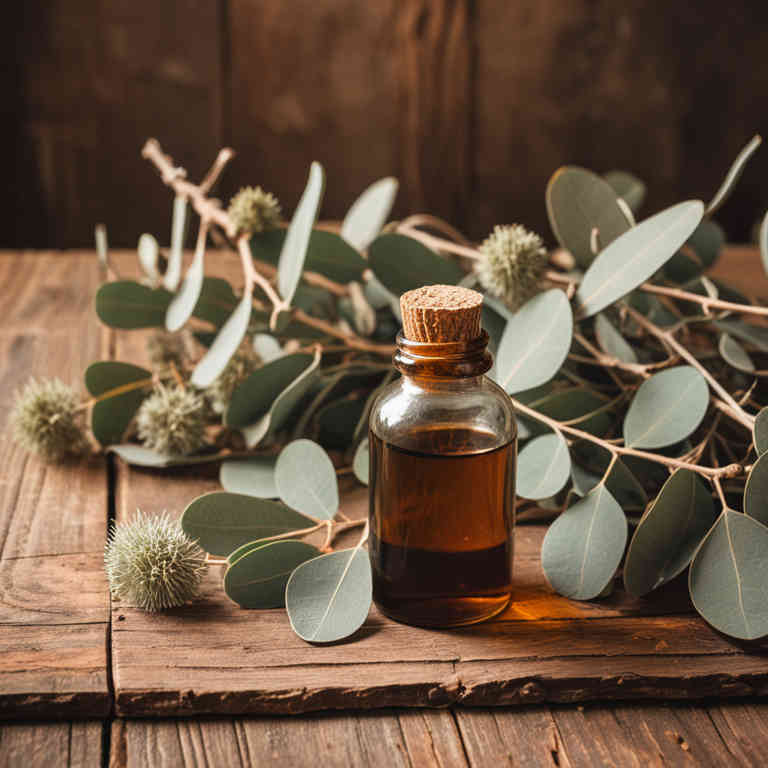Eucalyptus globulus tincture for medicinal use

Eucalyptus globulus tincture is a concentrated liquid extract made from the leaves of the Australian eucalyptus tree, commonly known as the blue gum tree.
It is prepared by soaking the dried leaves in alcohol to extract their active compounds, such as cineole and other essential oils. In herbalism, this tincture is used to support respiratory health by helping to relieve symptoms of colds, coughs, and bronchitis due to its expectorant and antimicrobial properties. It is often used in steam inhalations or as a topical application for muscle pain and inflammation.
Its aromatic properties also make it a popular ingredient in natural air fresheners and aromatherapy.
Uses
Eucalyptus globulus tincture has been used to treat respiratory conditions for centuries, with its origins tracing back to Indigenous Australian communities who utilized eucalyptus leaves for their medicinal properties.
Historically, it was employed to alleviate symptoms of colds, coughs, and bronchitis, often through steam inhalation or topical application. In traditional medicine systems, such as Chinese and Ayurvedic practices, eucalyptus was valued for its antiseptic and anti-inflammatory effects. Modern applications include its use in over-the-counter remedies for nasal congestion, as well as in aromatherapy and as a component in pharmaceutical products for respiratory support.
Today, it remains a popular natural remedy, supported by both traditional knowledge and contemporary scientific research.
Benefits
Eucalyptus globulus tincture has health benefits such as relieving respiratory congestion, reducing inflammation, and supporting immune function.
It is commonly used to alleviate symptoms of colds, coughs, and bronchitis due to its expectorant and antiseptic properties. The active compounds in eucalyptus, such as cineole and eucalyptol, contribute to its ability to open airways and ease breathing. This preparation may also help with muscle pain and skin conditions when applied topically.
It is often used in aromatherapy and as a natural remedy for various health concerns.
Constituents
Eucalyptus globulus tincture active constituents include eucalyptol (also known as cineole), which is the primary bioactive compound, as well as other terpenes, flavonoids, and phenolic compounds.
These components contribute to the tincture's expectorant, anti-inflammatory, and antimicrobial properties. Eucalyptol is responsible for the characteristic menthol-like scent and is known to help loosen mucus and relieve respiratory congestion. The flavonoids in the tincture may support immune function and have antioxidant effects.
Overall, these active constituents make Eucalyptus globulus tincture a popular choice for supporting respiratory health and reducing symptoms of colds and flu.
Preparation
To make Eucalyptus globulus tincture, first gather fresh or dried eucalyptus leaves and ensure they are clean and free from contaminants.
Next, place the leaves in a glass jar and cover them completely with high-proof alcohol, such as vodka or grain alcohol, leaving about an inch of space at the top. Seal the jar tightly and store it in a dark, cool place, shaking it gently every few days for four to six weeks to allow the alcohol to extract the active compounds. After the steeping period, strain the mixture through a fine mesh strainer or cheesecloth to remove the plant material.
Finally, transfer the resulting tincture to dark glass bottles for storage, and label it with the date and contents for future reference.
Side Effects
Eucalyptus globulus tincture may lead to gastrointestinal discomfort, allergic reactions, and respiratory irritation.
It is commonly used for its expectorant and decongestant properties, often in the treatment of colds and respiratory infections. However, it should be used with caution, especially in children and individuals with asthma. Possible side effects include nausea, vomiting, and skin rashes upon contact.
In high doses, it may cause more severe effects such as dizziness, confusion, or even toxicity.